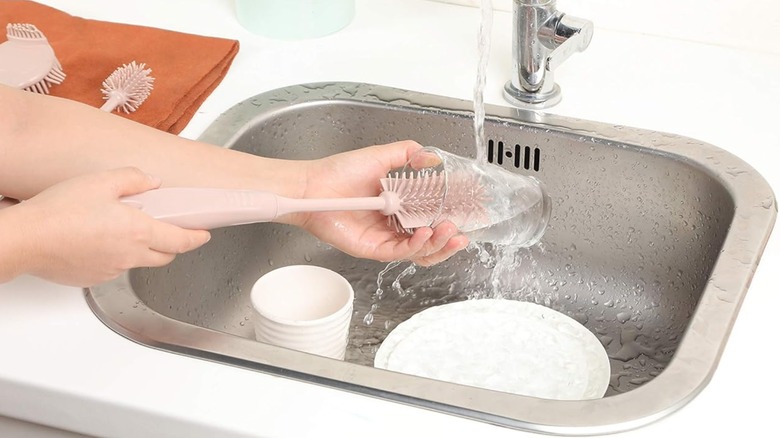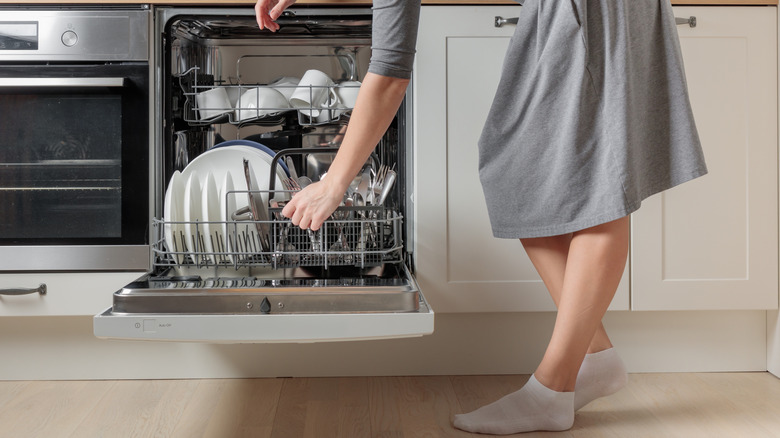When Should You Replace Your Silicone Cleaning Brushes?
We may receive a commission on purchases made from links.
Silicone cleaning brushes are light years ahead of nylon bristle devices and the dreaded, mildew magnet kitchen sponge. Although there are ways to keep your kitchen sponges clean, silicone brushes are soft, rubbery, and easy to wash and dry, so they're great for keeping moisture-loving bacteria at bay while maintaining a neutral odor. Instead of nylon bristles that can flatten or fall out, they're completely made of silicone. They also come in several different configurations for different tasks. Long, thin silicone brushes are great for cleaning water bottles to make them good as new. Wider bristles will obviously tackle your more everyday dinner dishes. And, even better, silicone cleaning brushes could potentially last for years — but of course, they will break down with wear.
You'll want to replace your silicone cleaning brushes when they start to show signs of breakdown, which, again, should take quite a while. But, in the event those bristles start to break or the whole thing loses its spring, it's eventually going to become a time waster as you scrub harder and longer to compensate for the deteriorating product. So, replace them if you notice any wear, as well as any mold or mildew buildup, which can be caused by not drying the brush. Still, these cleaning products could last for years, especially if you maintain them properly.
Keeping your silicone brush in tip top shape
Most silicone cleaning brushes like the Kitchiny Bottle Brush and Straw Cleaner Set on Amazon are going to be dishwasher safe, but obviously double-check whatever's in your possession to be safe. And the dishwasher, indeed, is the best place to give them a deep clean, as the sustained heat and steam will sanitize all those firm, closely-spaced bristles. Just be sure to avoid any dishwasher mistakes you may have been making this whole time and place it on the top rack.
If a dishwasher isn't in the mix, you can hand wash silicone cleaning brushes the way you would almost anything else. Shake off any obvious debris, massage in some dish soap under hot water, and rinse. Silicone is water repellent, so the H2O will bead up on its own, but you'll still need to give it a good wipe down to keep your brushes bone dry. While the material is generally resistant to ruinous elements like mold and mildew, growth is not unheard of. Properly drying your silicone cleaning brushes will help to eliminate any conditions where, under certain circumstances, those fungi might have a chance to thrive.

